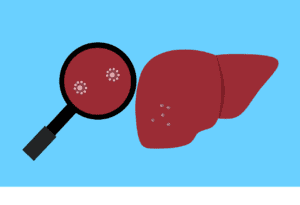Maple Syrup Urine Disease (MSUD)
What is maple syrup urine disease (MSUD)?
Maple syrup urine disease (MSUD) is a subtype of organic acidemia, and is a disorder in which the body cannot break down certain parts of proteins. It has its name because people with this condition produce urine that smells sweet. Normally, the body breaks down proteins from food into amino acids. People with MSUD don’t have enough of an important protein complex that helps to break down three different amino acids. Maple syrup urine disease is also broken down into different categories that are classified by patterns of signs and symptoms. Classic type is the most common and severe form of the disease, and is characterized by barely any enzyme activity. It appears shortly after birth, while other forms of the disorder become apparent later in infancy and childhood. They are usually milder, but can still lead to health problems if left untreated. It is estimated that MSUD affects 1 in 185,000 infants worldwide. It occurs in males and females in equal numbers. Some studies indicate that it occurs much more frequently in the Mennonite population, with an estimated incidence of 1 in 380 live births.What are the symptoms of maple syrup urine disease?
The following are symptoms associated with MSUD:- Urine that smells sweet, like maple syrup
- Poor feeding
- Irritability
- Vomiting
- Lethargy
- Abnormal movements
- Developmental delay
- Behavioral issues such as ADHD, impulsivity, depression, and/or anxiety
- Loss of bone mass
- Inflammation in the pancreas
- Seizures
- Coma
What causes maple syrup urine disease?
MSUD is inherited in an autosomal recessive pattern, which means that a mutated version of the gene has to be passed down from both parents in order for the individual to have the disease. Mutations in the BCKDHA, BCKHB, and DBT genes can cause maple syrup urine disease. These genes give the body instructions for making proteins that work together as part of a complex (branched-chain alpha-keto acid dehydrogenase complex). A protein complex contains multiple proteins that stably interact with each other. This protein complex is essential for breaking down the amino acids leucine, isoleucine and valine, which are present in the food we eat—especially foods high in protein. A mutation in any of the genes could reduce or eliminate the function of the protein complex, which would keep the body from breaking down the amino acids properly. When this happens, then the three amino acids and their byproducts build up in the body. The problem is that high levels of these substances are toxic to the brain and other organs, which leads to the health problems associated with MSUD.How is maple syrup urine disease diagnosed?
Maple syrup urine disease is diagnosed using the following procedures:- Newborn screening programs
- Tandem mass spectrometry
- Through the notation of symptomatic findings (noticing the symptoms)
- Urine analysis to detect high levels of specific acids
- Blood analysis to detect high levels of amino acids
- White blood cell analysis
- DNA testing
What are the treatments for maple syrup urine disease?
When treating maple syrup urine disease, it is important to focus on maintaining acceptable amino acid levels in the body and preparing for immediate medical intervention in the case of metabolic crises. Treatment includes, but is not limited to:- Implementation of a specialized diet that limits the amount of proteins—and thus the three pertinent amino acids—one takes in
- Consumption of artificial (synthetic) formula that provides the nutrients necessary for growth, but does not have leucine, isoleucine, and valine.
- Thiamine therapy
- Immediate medical intervention that works to lower the body’s levels of leucine, isoleucine, and valine in the case of a metabolic crisis
- Dialysis
- Hemofiltration, which removes plasma from the body, passes it through a filter, then returns it to the body
- Genetic counseling
Where can I find out more about maple syrup urine disease?
Maple Syrup Urine Disease (MSUD) Articles

Woman with MSUD is Looking for a Living Liver Donor—Is It You?
Jessica Lynn
November 9, 2023
Read More »


India Has Introduced a New Rare Disease Policy Draft, But it Doesn’t Benefit all Rare Patients
Trudy Horsting
January 30, 2020
Read More »

Study: Disease Modifying Therapies Needed for Maple Syrup Urine Disease
James Moore
January 28, 2020
Read More »

Yeast May be the Key to Uncovering Treatments for Homocystinuria and Other Metabolic Conditions
Trudy Horsting
February 1, 2019
Read More »

Experimental Treatment for Maple Syrup Urine Disease Gets Orphan Drug Designation
James Moore
November 6, 2018
Read More »






